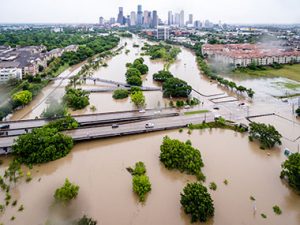We wake up in the middle of the night. The earth booms. Heavy fire is falling on us. We crouch into corners. We distinguish shells of every calibre.
Each man lays hold of his things and looks again every minute to reassure himself that they are still there. The dug-out heaves, the night roars and flashes. We look at each other in the momentary flashes of light, and with pale faces and pressed lips shake our heads.
Every man is aware of the heavy shells tearing down the parapet, rooting up the embankment and demolishing the upper layers of concrete. When a shell lands in the trench we note bow the hollow, furious blast is like a blow from the paw of a raging beast of prey. Already by morning a few of the recruits are green and vomiting. They are too inexperienced….
The bombardment does not diminish. It is falling in the rear too. As far as one can see spout fountains of mud and iron. A wide belt is being raked.
The attack does not come, but the bombardment continues. We are gradually benumbed. Hardly a man speaks. We cannot make ourselves understood.
Our trench is almost gone. At many places it is only eighteen inches high, it is broken by holes, and craters, and mountains of earth. A shell lands square in front of our post. At once it is dark. We are buried and must dig ourselves out….
Towards morning, while it is still dark, there is some excitement. Through the entrance rushes in a swarm of fleeing rats that try to storm the walls. Torches light up the confusion. Everyone yells and curses and slaughters. The madness and despair of many hours unloads itself in this outburst. Faces are distorted, arms strike out, the beasts scream; we just stop in time to avoid attacking one another….
Suddenly it howls and flashes terrifically, the dug-out cracks in all its joints under a direct hit, fortunately only a light one that the concrete blocks are able to withstand. It rings metallically, the walls reel, rifles, helmets, earth, mud, and dust fly everywhere. Sulphur fumes pour in.
If we were in one of those light dug-outs that they have been building lately instead of this deeper one, none of us would be alive.
But the effect is bad enough even so. The recruit starts to rave again and two others follow suit. One jumps up and rushes out, we have trouble with the other two. I start after the one who escapes and wonder whether to shoot him in the leg-then it shrieks again, I fling myself down and when I stand up the wall of the trench is plastered with smoking splinters, lumps of flesh, and bits of uniform. I scramble back.
The first recruit seems actually to have gone insane. He butts his head against the wall like a goat. We must try to-night to take him to the rear. Meanwhile we bind him, but in such a way that in case of attack he can be released at once….
Suddenly the nearer explosions cease. The shelling continues but it has lifted and falls behind us, our trench is free. We seize the hand-grenades, pitch them out in front of the dug-out and jump after them. The bombardment has stopped and a heavy barrage now falls behind us. The attack has come.
 Include our brains. This report about Houston from last year outlines how unchecked development remains a priority in the famously un-zoned city, creating short-term economic gains for some while increasing flood risks for everyone:
Include our brains. This report about Houston from last year outlines how unchecked development remains a priority in the famously un-zoned city, creating short-term economic gains for some while increasing flood risks for everyone: